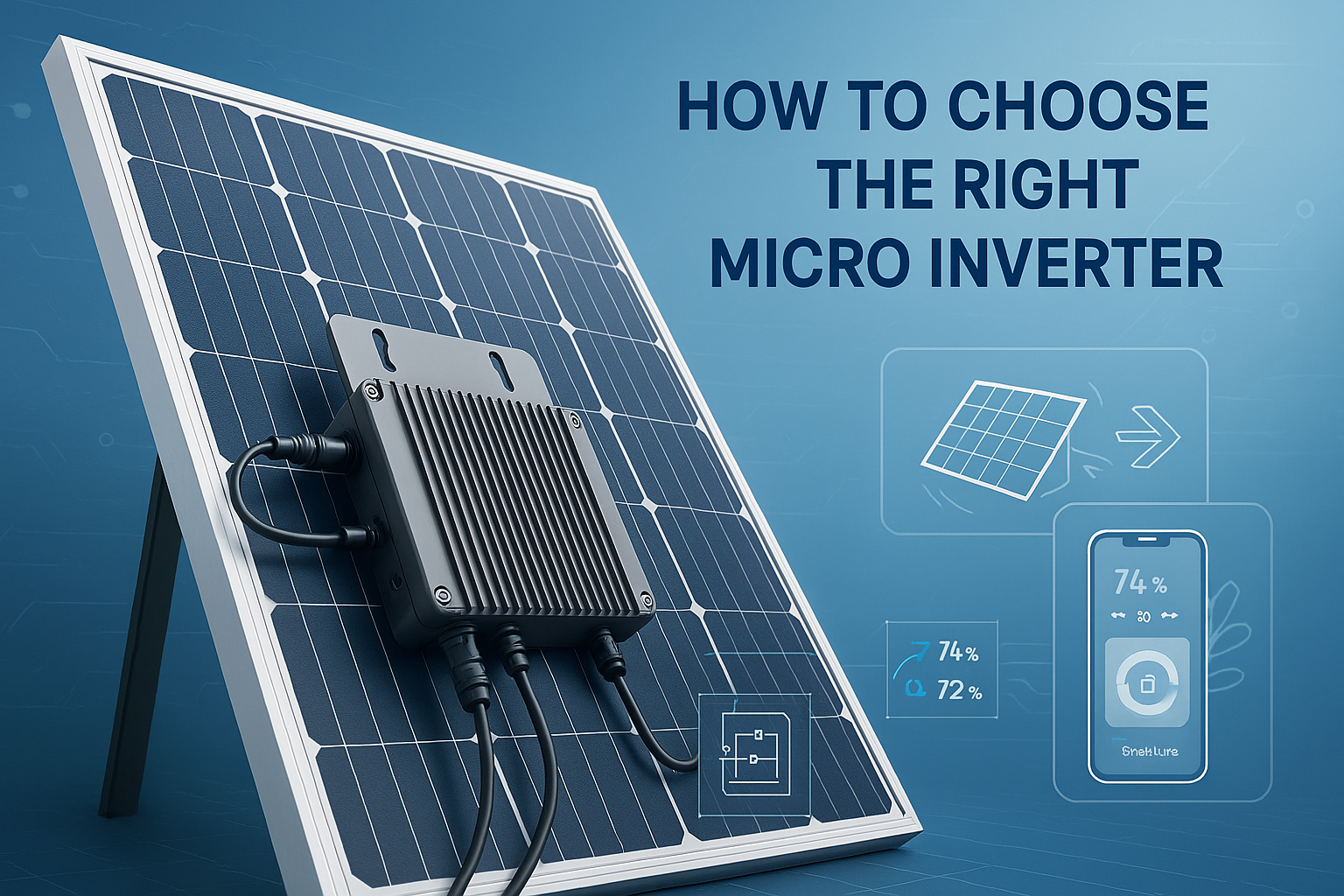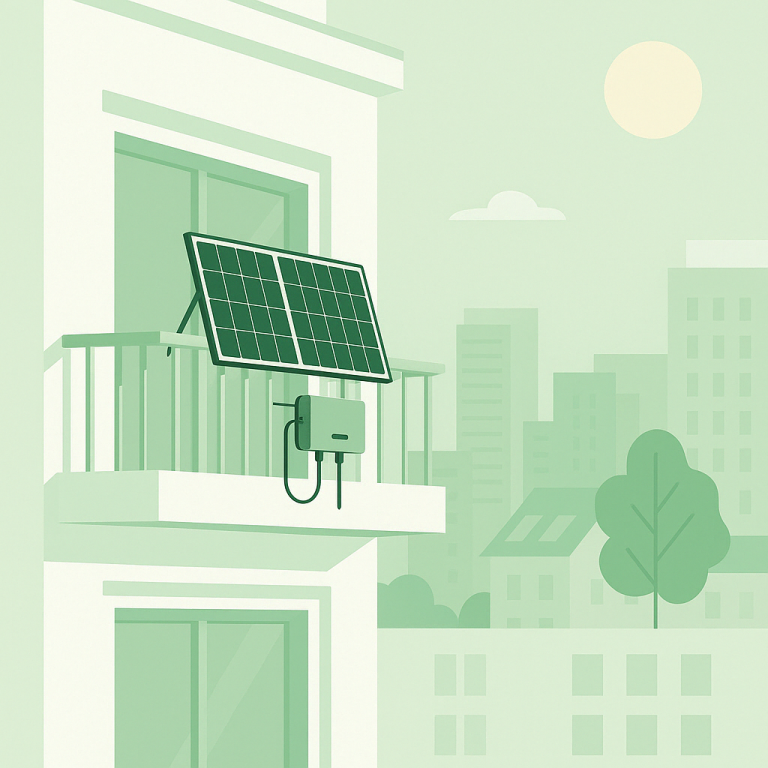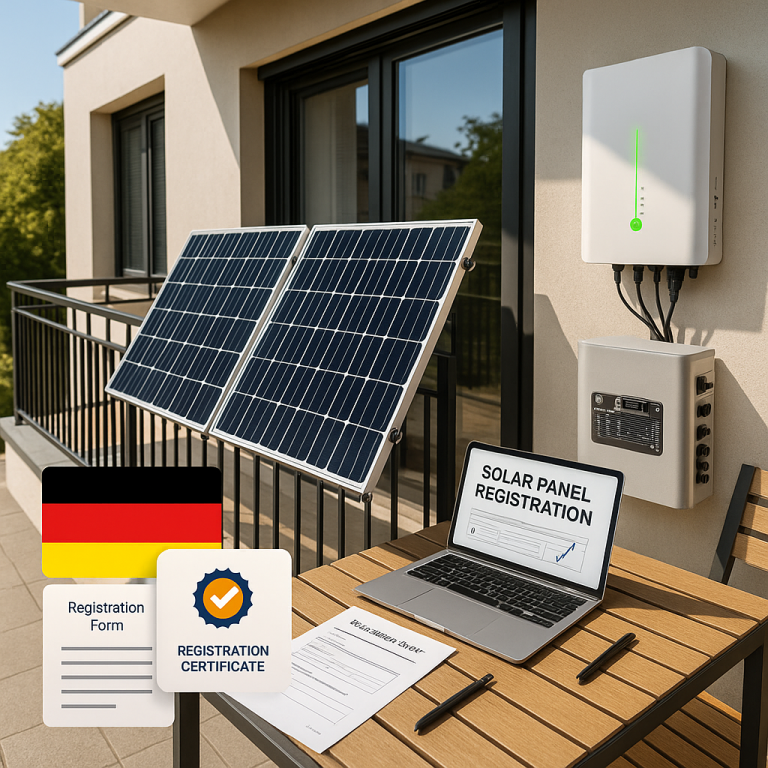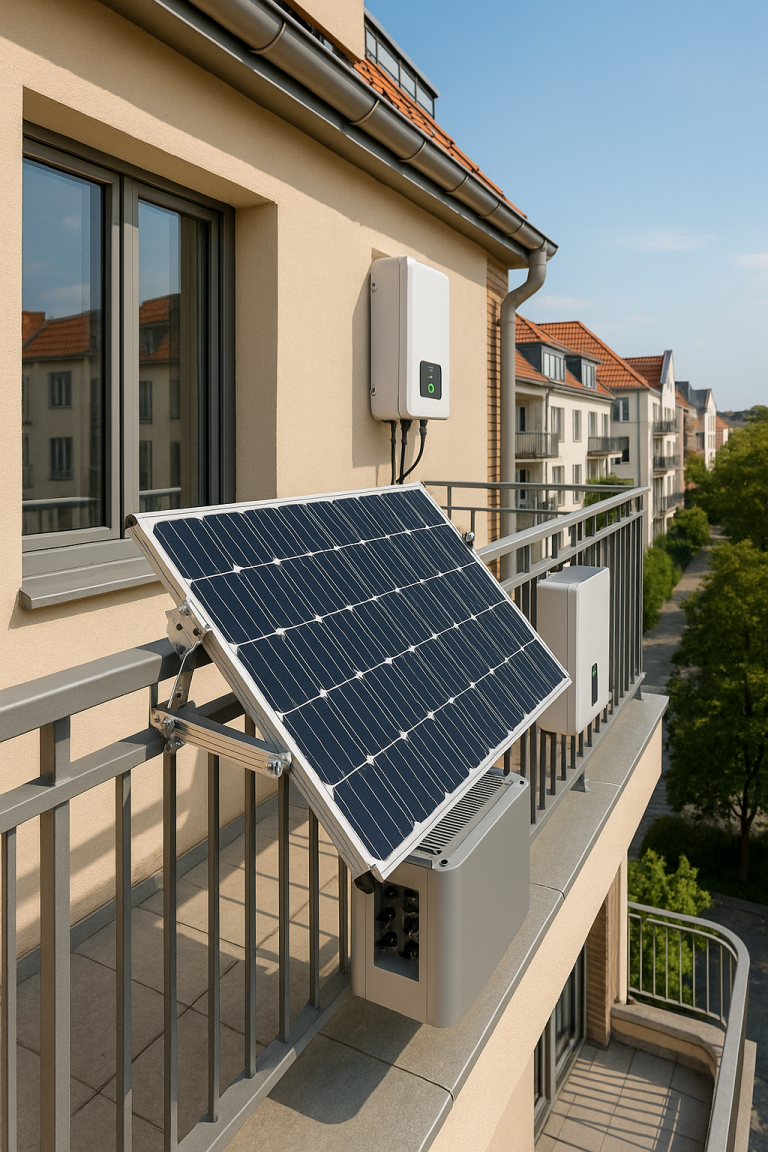?What Is a Micro Inverter and Why It Matters
A micro inverter is a compact, lightweight inverter that converts the DC output of a single solar panel into usable AC power. It is especially ideal for small installations like balcony solar kits, where space is limited and safety is paramount.
✅ Key Advantages:
- Panel-level MPPT: Each panel performs at its own maximum capacity
- No high-voltage DC cabling: Increased fire safety for homes
- Plug & Play compatible: Simplifies installation for non-professional users
- Remote Monitoring: WiFi-enabled systems allow real-time tracking via app
?3 Things to Consider When Choosing a Micro Inverter
1️⃣Rated Output Power: Match Your Panel & Local Regulations
Make sure the micro inverter’s AC output is compatible with your solar panel’s wattage and local power grid standards.
- For 400W × 2 panels, use a 600W or 800W micro inverter
- EU markets (like Germany) often restrict balcony output to 600W–800W
- Always check for pure sine wave output for device compatibility
2️⃣Certifications & Grid Compliance
B2B customers must ensure all inverters are compliant with regional grid standards and safety certifications.
- CE, TÜV, VDE, EN 50549 for European markets
- UL 1741 / IEEE 1547 for the United States
- Grid Anti-Islanding Protection is essential for safety
- Ask your supplier for DoC (Declaration of Conformity) documents
3️⃣Communication & Smart Features
Modern micro inverters often come with Wi-Fi, Bluetooth, or CAN Bus interfaces for real-time monitoring and remote diagnosis.
- WiFi + app enables end-user visualization of power generation
- CAN allows battery + inverter communication in hybrid setups
- Optional integration with PV hub or home energy systems
?️Common Use Cases for Micro Inverters in Balcony Solar
| Use Case | Description |
| 800W Plug-and-Play Kit | 2 × 400W panels + 800W micro inverter for EU homes |
| 600W Grid-Tied Balcony System | Compact panel set for apartments in Germany |
| Off-grid Hybrid with Battery | With CAN-enabled inverter + 5kWh Lifepo4 battery |
| OEM White-Label Solar Kits | Branding + firmware customization available |
?Our Recommended Models
We offer a range of high-efficiency micro inverters, optimized for balcony use:
- 600W / 800W / 1200W models available
- Up to 97.5% efficiency, with active cooling
- Compatible with LiFePO4 battery systems
- Stackable for multi-panel configurations
? Ask us for spec sheets, pricing, and OEM options for your brand.
✅ Conclusion: Invest in the Right Inverter to Power the Future
Micro inverters are no longer just an accessory — they are the nerve center of any balcony solar solution. For B2B customers, choosing the right inverter ensures your product stands out in terms of safety, efficiency, and ease of use.
We invite you to explore our full lineup of balcony-ready inverters and get in touch for a personalized solution.
? Contact us for datasheets, certifications, and technical support.




